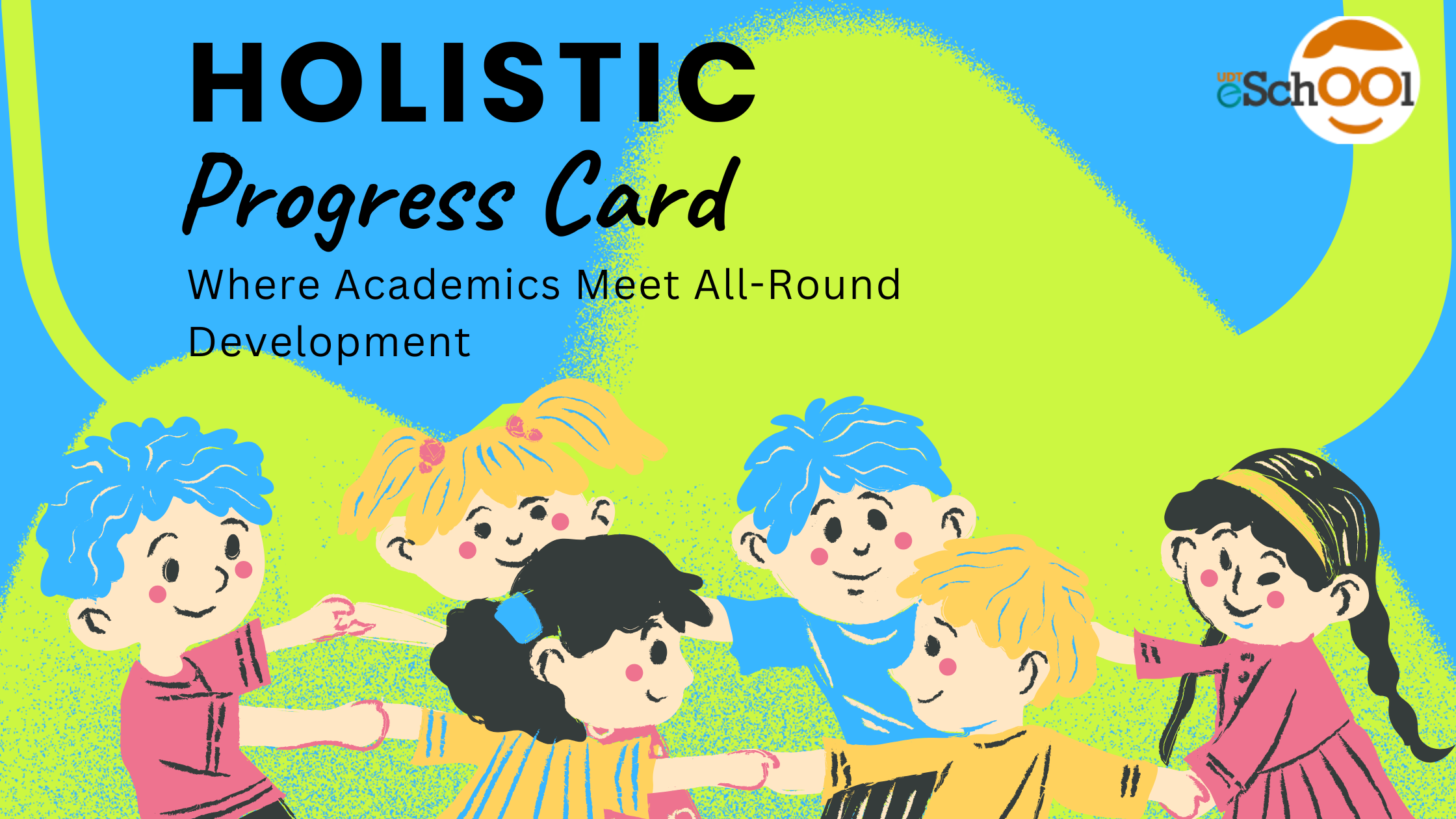Ever since the CBSE implemented the guidelines of the New Education Policy, schools across the country have been witnessing major changes. One of the key highlights of these changes is the implementation of the Holistic Progress Card (HPC).
A Holistic Report Card goes beyond academic scores to present a complete picture of a student’s growth. Unlike traditional report cards that focus only on marks, a holistic progress card evaluates students on various parameters including academics, co-curricular activities, life skills, emotional well-being, and values. This modern approach to student assessment is designed to support overall development rather than just academic performance.
A Holistic Report Card is more than just a grade sheet—it’s a complete assessment of a student’s intellectual, emotional, social, and creative development. It captures the full spectrum of a child’s learning journey, including participation in activities, communication skills, teamwork, leadership, and personal values. Unlike traditional assessments, holistic progress reports give equal importance to both academics and life skills. Schools using digital platforms like UDTeSchool can now generate these insightful reports with ease, ensuring that parents stay informed and children stay motivated. Holistic evaluation is the future of education—and it’s already here.
In today’s learner-centric world, a Holistic Report Card helps educators, parents, and students look beyond scores. It gives equal importance to academics, creativity, physical health, socio-emotional skills, and overall personality development. Such a 360-degree evaluation empowers students to understand their strengths, work on their weaknesses, and become more self-aware. UDTeSchool enables schools to effortlessly manage these comprehensive assessments through a digital platform—making report generation, data analysis, and sharing feedback faster and smarter. With a holistic approach, we nurture not just achievers, but true learners.
A bold and necessary move over traditional rote teaching methods, this new progress report aims at educating children across the essential development parameters of cognitive, emotional, physical, and social skills. However, without the support of well-planned and structured technology, using this card practically is too difficult. But with the right technology, it not only fulfills the core objectives of HPC but also saves the time of the school’s stakeholders to focus on other crucial activities as well. In this blog, we will discover how schools can adopt the latest technology in managing the holistic progress report card of students.
Integration of Technology in Holistic Progress Card
1. Digitalization
By digitalization of data related to students, fields of assessment, feedback, and charting the progress at a centralized platform, the schools can save a huge time on maintaining the paperwork involved. While this method was already adapted in traditional report cards, it is already gaining momentum in making a Holistic Progress Card efficiently. It secures the data, provides easy access to the data management team, and, more importantly, enables the teachers to monitor and track the child’s progress with a click.
2. Machine Learning
Machine learning is a method in which a set of algorithms analyzes the data and recognizes the patterns, and gives suggestions for improvement. Pattern recognition is a highly effective way to track the progress of students. It gives an insight into what activities they are comfortable with, which skills are natural to them, and what their drawbacks and disadvantages are. Using specialized software based on machine learning, schools can get a detailed analysis of the available data and make suitable strategies for the growth of individual students.
3. Artificial Intelligence
While machine learning gives analyses of the current data and patterns, artificial intelligence provides more comprehensive analyses. From retrospective to predictive, it gives results by studying large and complex data and shares concrete output that contains performance insights, suggestions, and predicts the future based on current patterns, and therefore helps the schools create a clear framework and plan for the students’ development.
4. Accessible Dashboard
One of the key points of the National Education Policy’s suggestion is the inclusion of parents, peers, and teachers as stakeholders in the growth of a child. Getting inputs from all these places and noting them on a single sheet is not feasible. But with dedicated software with an accessible dashboard, the stakeholders can input their remarks and share their feedback. It establishes real tie communication between guardians and teachers and engages them to actively participate in their child’s journey in school.
Final Words
To integrate all these technologies for managing the Holistic Progress Card, schools can rely on automation software. This software provides a secure and dedicated platform with a dashboard for easy access, input, and data fetching for teachers, students, and parents. tIt reduces the arduous labour work in creating physical reports and also reduces the environmental impact by saving paper. In a nutshell, schools can streamline their progress card management by adopting the innovations in modern information technology.
Platforms like UDTeSchool have made it easier for schools to implement holistic report cards digitally. With smart features and intuitive dashboards, educators can track progress, record observations, and share detailed feedback with parents seamlessly.
In today’s evolving education system, the Holistic Report Card plays a vital role in shaping a better future for students. It’s not just a report—it’s a reflection of a child’s journey, efforts, and true potential.
